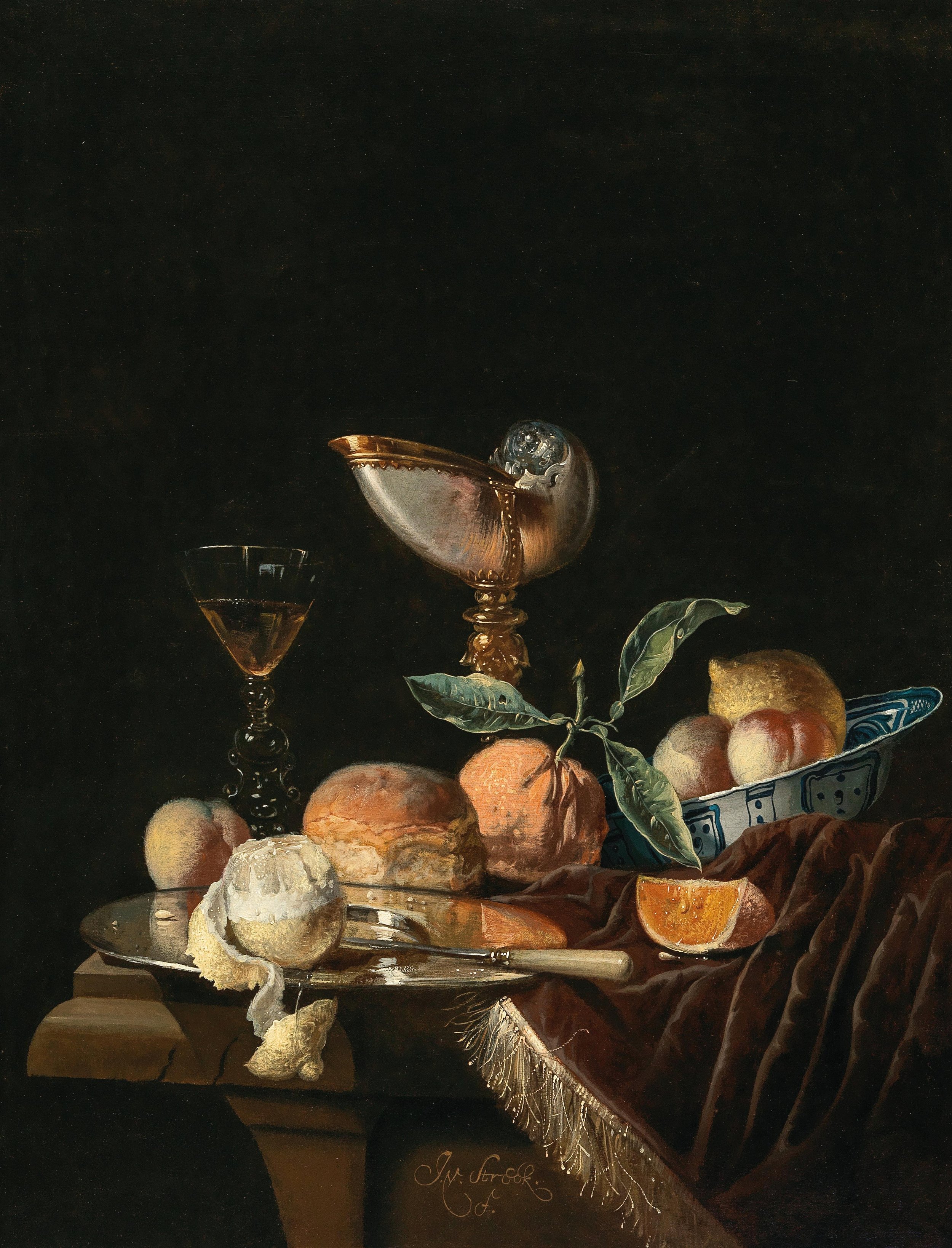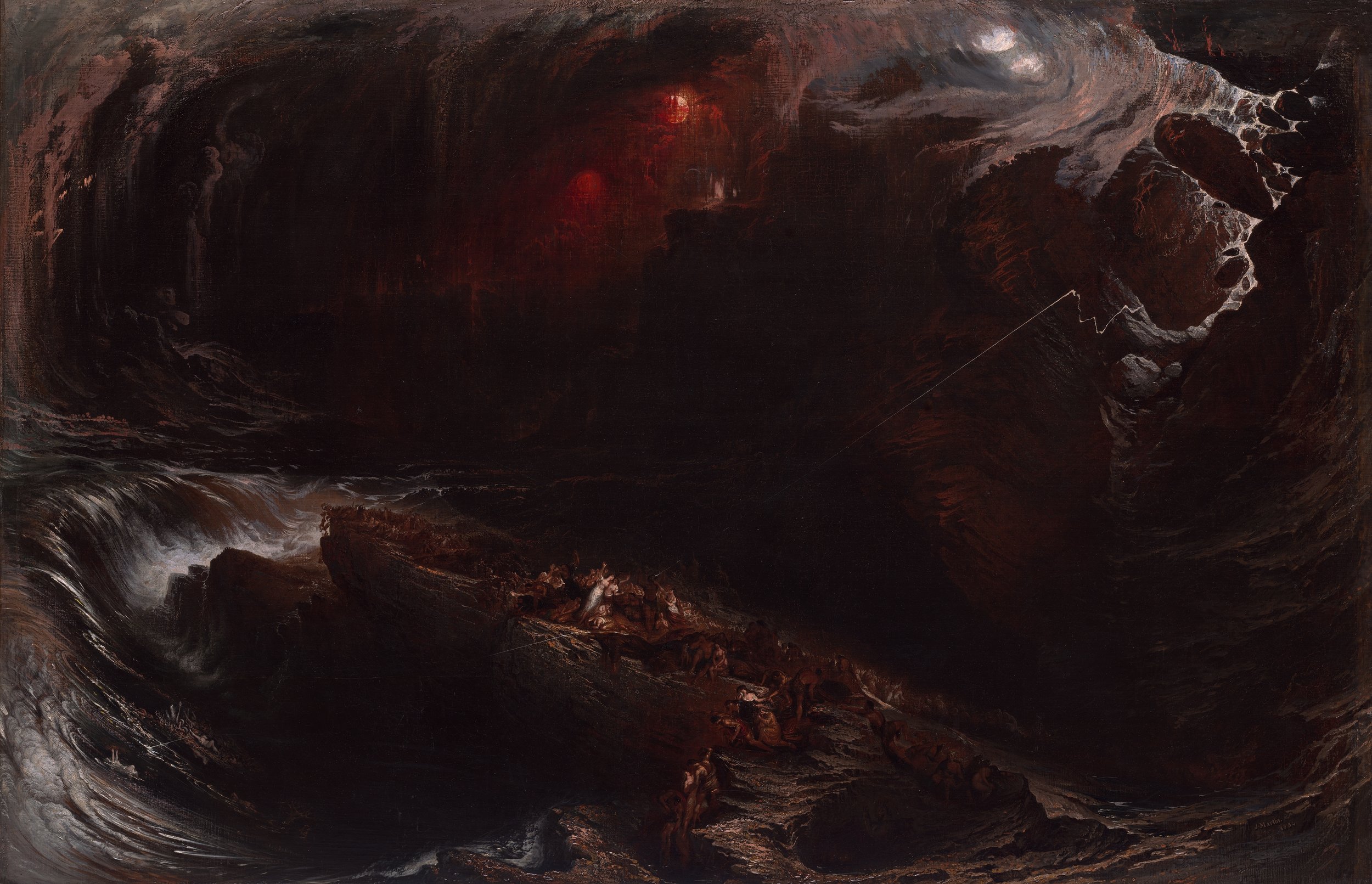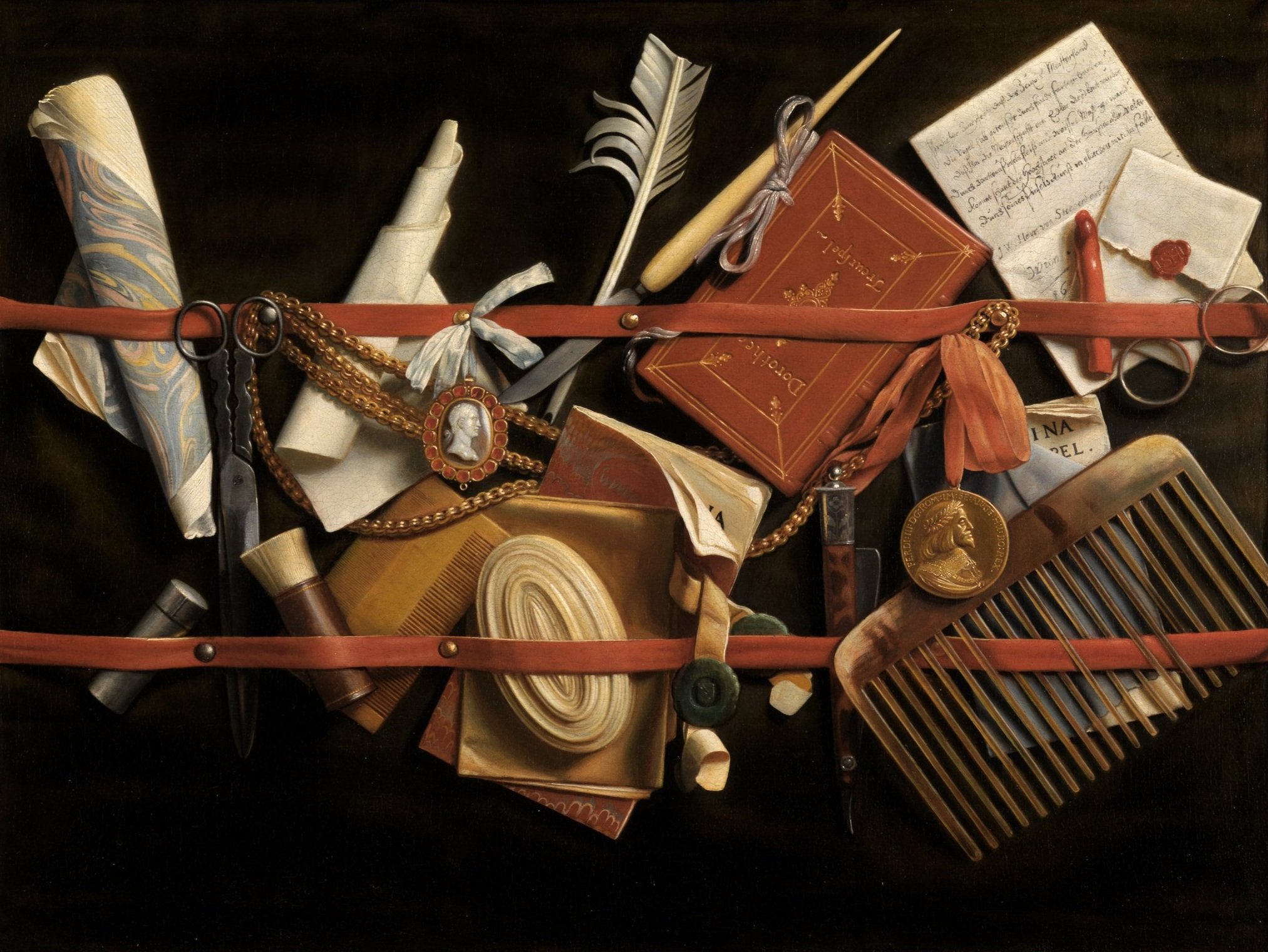An Igbo Joke Told in English

An Igbo Joke Told in English
Chine McDonald
On Becoming Conversational with the So-Called Secular
What’s the word for feeling at home and displaced at the same time? I feel like this often—at home and displaced in Nigeria, the country of my birth; at home and displaced in the UK, which I have called home since I was four years old.
I feel it most when I’m sitting, or dancing, in a room full of my relatives. My people, the Igbo ethnic group of southeastern Nigeria, are unapologetically loud. We speak loudly. We get married loudly. We christen our children loudly. We die loudly. Our celebrations are marked with a level of exuberance that matches the importance of these rites of passage.
My people love words. When we gather—often in the late hours after a family event, when we have slipped off our shoes and taken off our tight gele head ties—we sit down to gist, and my uncles begin to tell their stories. They are long, stretched-out tales. They are jokes we’ve all heard before: poking fun at people from neighboring villages, spinning an unlikely yarn about what happened when the Igbo man met the lion, each caught somewhere between fable and gibe.
Some of the world’s greatest storytellers have come from among us: Buchi Emecheta and Chimamanda Ngozi Adichie, along with Chinua Achebe, who begins his iconic tale, Things Fall Apart, with this: “Among the Igbo, the art of conversation is regarded very highly, and proverbs are the palm oil with which words are eaten.” We pride ourselves on it, this innate expression of truth and connection through story.
It’s in our blood.
*
There is something in the familiarity of these stories. I remember sitting at the feet of my elders as a young child, soaking in that atmosphere of storytelling. I would hang on every word, and when it got to the punchline, we’d all erupt in laughter—except me. The thing was, though the story was told in English, the punchline would often be delivered in Igbo, our mother tongue—that is what made it so funny. But I, not knowing the language well, would look puzzled, and then my parents or an aunt or uncle would try to explain it to me in English, but the joke lost its power in translation.
It was here at the foot of my relatives’ feet, sometimes in the sticky heat of Nigeria, that I felt both at home and displaced. I was at home with my family—people who looked like me, nestled within the comfort of resemblance—but an uneasy sense of displacement reared its head at the punchline or when conversations in Igbo swirled around me, and I felt like I did not understand an important part of me. Perhaps the most important.
Nelson Mandela once said, “If you talk to a man in a language he understands, that goes to his head. If you talk to a man in his language, that goes to his heart.” When I hear my mother tongue, it sounds like a long-forgotten memory; something buried deep inside me that wants to be unearthed. It feels both strange and familiar. It feels like home, albeit a home I have never lived in, and yet long to return to. It’s like that feeling I have when I leave the house and can’t shake the niggle that I have forgotten something—a part of me left behind. My mother tongue is my heart language, but for me and many first- and second-generation immigrants, this mother tongue is a language we don’t speak.
*
What’s the word for the moment when you just can’t remember the word you’re looking for, and you reach back into the annals of your memory, mentally running through a dark tunnel of letters and phrases until you find it illuminated? What’s the word for that feeling of relief when you remember it?
As I get older, or perhaps it was ever thus, I find myself grasping for temporarily forgotten words often, especially when I write. While writing this paragraph, I have already had to search my mind for the words annals, illuminated, and grasping. I have birthed two children, and I’ve read that a mother’s brain pushes out unnecessary information—like people’s names, colors, the names of kitchen utensils—to keep the important information in. Without the right language, though, we falter.
Earlier this year, I stood outside the gates of a 14th-century chapel in Neuilly-sur-Seine, just outside of Paris. Our party of three, two Brits and an American, were there to see the “Black Madonna of Paris”—also known as the statue of Our Lady of Good Deliverance—which had long been a focus of prayers by well-known pilgrims like saints Vincent de Paul and Francis de Sales. The statue is housed in the chapel of the Congregation of the Sisters of St. Thomas of Villeneuve, but the sisters did not seem to want to let us in.
One of the nuns stood sternly at the gate to keep us out. Perhaps it was the language barrier that was the real problem. She was speaking quickly in French, and my rusty A-level comprehension could not keep up. We all looked puzzled—the sister communicating in French, and us trying to guess what she meant. Eventually, we sought the help of a passerby, an Australian who attempted to translate for us, and were soon let in. The language barrier was temporarily crossed, thanks to the help of a translator—a bridge for us to cross the chasm of misunderstanding.
*
When it comes to communicating our faith, we need such translators to act as bridges between people of faith and those for whom the language of faith has become alien. What’s the word for a society that has lost this language of faith?
Many years ago, I sat with a friend over brunch, and together we attempted to articulate what each of us sensed was our calling from God. Mine was this: to communicate the good news of the Christian faith to a world that no longer understands it. This is what I have dedicated my life to. In all that I do—in my writing and speaking and storytelling—I want to act as a bridge between the sacred and the so-called secular. I want to translate the wisdom of Scripture for a “Christ-forgetting Christ-haunted” world, as Walter Percy writes in Love in the Ruins—a world that no longer speaks the language of faith, one for whom this language is lost.
I often think of Acts 17, where Paul at the Areopagus is attempting to speak the language of the culture to communicate the heart language of faith. Some listeners simply don’t get it: What is this babbler trying to say? Some are curious. Listening to Paul, they feel the pang of recognition of a lost language that connects them with the God in whom they live and move and have their being. A call back to something they had forgotten, that they couldn’t quite put their finger on, even amid a cacophony of Grecian deities.
I frequently think about this passage in my work leading Theos, a think tank attempting to tell a better story about the Christian faith to a world that often does not have the language to understand it. In the UK, much has been made of the 2021 census figures, which showed a significant decline in the numbers of people describing themselves as Christian in England and Wales. For the first time, this number is less than half of the population.
Perhaps the public’s comprehension is just a little rusty. Many older people were raised in the Christian faith—they know the words to hymns and can recite Bible passages they learned in Sunday school. Perhaps they never spoke the language of faith at all. Many of the younger generations find the church completely alien, as it was never been part of their experience.
The figures show, though, that people are still searching; they’re longing to converse in these ancient languages of faith. We see it through the numbers of nonreligious people, those who would call themselves “spiritual”—who seek after God in tarot and crystals and manifesting. Something within them is longing to reconnect with the heart language they never knew they could speak.
*
There are those, young and old, in the Anglo-American world who feel the tug of the spiritual. Though they cannot put words to it, they feel it when they walk into a vast cathedral and sit in the stillness in the presence of the numinous. They cannot articulate why this place might feel at once otherworldly and yet also like coming home. Some might try to name this feeling with vocabulary that does not quite do it justice. Supernatural? Mystical? Magical? It feels just like retelling an Igbo joke in English—it doesn’t quite hit the spot.
Language fails us. The experience gets lost in translation. If I describe this thing simply as God, there may be a hundred different images running through another’s mind. There is a place for language, but sometimes language is not enough. Sometimes what is required to translate the heart language of faith is to show and not tell.
Sometimes, our task as translators is to make people feel what we are trying to say rather than tell them. Or perhaps it is essential to do both. That’s why we at Theos don’t just publish beautifully written reports, filled with insight and argument and statistics. We also try to engage the heart through photography and animation and music and poetry. The heart language is so often spoken through the arts. It’s here that we might find the vocabulary without words to communicate deeper truths. Paul knows this, which is why at the Areopagus he connects the truths he is trying to convey about God with the Greeks’ “own poets.”
This place, where Paul stands to tell truths about God, is a gathering of the governing council of Athens. It was where important people conversed and decided on how things should be. In traditional Igbo culture, we have our own Areopagus of sorts. The obodo is a space outside where benches are placed under a network of trees. It is in this place that people gather together to discuss community matters and tell each other stories. It is not a space for the elite, but for all.
I have a distant memory of watching Tales by Moonlight, which took its name from the concept of an obodo, as a child in Nigeria. Though Sesame Street was much-loved in our house, it was this weekly Nigerian children’s program with its folk tales and fables that helped to teach me something of the importance of story: the communication of deep truths about what it is to be human. Here, I learned that truth and beauty are found in community.
I wonder whether the memory of the obodos of home were evoked when Igbo people, who had been enslaved and taken from our shores, met under the trees. It was in these spaces, away from the prying eyes of their slave owners, that their moonlight tales spoke of a God who could break their chains. It is here the Negro spirituals were created, putting words to the language of divine liberation.
I worry about the future of Igbo, about a distant time when no one will speak it. Just as religion is in decline, so are many of the world’s languages. In fact, it is thought that of the 7,000 documented languages spoken in the world, 1,500 languages may be extinct by the end of the century. Just as secularism squeezes out faith until fewer and fewer people speak it, almost half of the world’s languages are in danger of becoming extinct; squeezed out in favor of globally dominant languages. According to one study, a language is lost every three months—but this rate could triple over the next 40 years.
I worry about how to teach my children both my language and my heart language. I want them to learn Igbo, to know they come from a people who are proud, generous, hard-working, and who tell great stories. And I want them to speak the heart language of faith, for it not to become rusty or forgotten or cast aside, but for it to be a living, breathing relationship with God.
The lingua franca of the age has been secularism—at least in the global north. For some, the ideal is a society in which this is the dominant language spoken, while the languages of faith are privatized, pushed to the sidelines, spoken in hushed whispers. My children need us to translate, to pass on this heart language to them as they grow in a world that might lose the tools with which to speak about it unless something is done.
*
To keep language alive, we must keep speaking it, even when it is easier not to. A few years ago, I stood in front of 800 people at St. Paul’s Cathedral in the heart of London to deliver a talk, alongside other panelists and speakers, for the book launch of Ben Lindsay’s We Need to Talk About Race. As I stepped up to the podium, ready to deliver my 12-minute speech, I felt an overwhelming urge to sing the words of an Igbo worship song that I had planned to read out:
Imela, Imela (Thank You! Thank You!)
Okaka, Onyekeruwa (Great and mighty creator of the world)
Imela, Imela, (Thank You! Thank You!)
Eze m Oh (My King)
There was something redemptive for me in this moment, singing a song of praise to God in my heart language, my mother tongue, despite feeling rusty and inadequate, and like I wasn’t quite saying the words right—and to have done so in this vast cathedral, an iconic part of the London skyline. Perhaps it didn’t matter that I wasn’t pronouncing the words exactly right. What mattered was that I was saying them, practicing this language in conversation with the Creator God. Just like with our faith, in language, in speech, in conversation, in community, there must always be grace. And perhaps that is all that matters.
Chine McDonald
Writer & Director
Chine is a writer, broadcaster, director of the religion and society think tank Theos & Author of God is Not a White Man.
Painting by Juriaen Van Streeck




